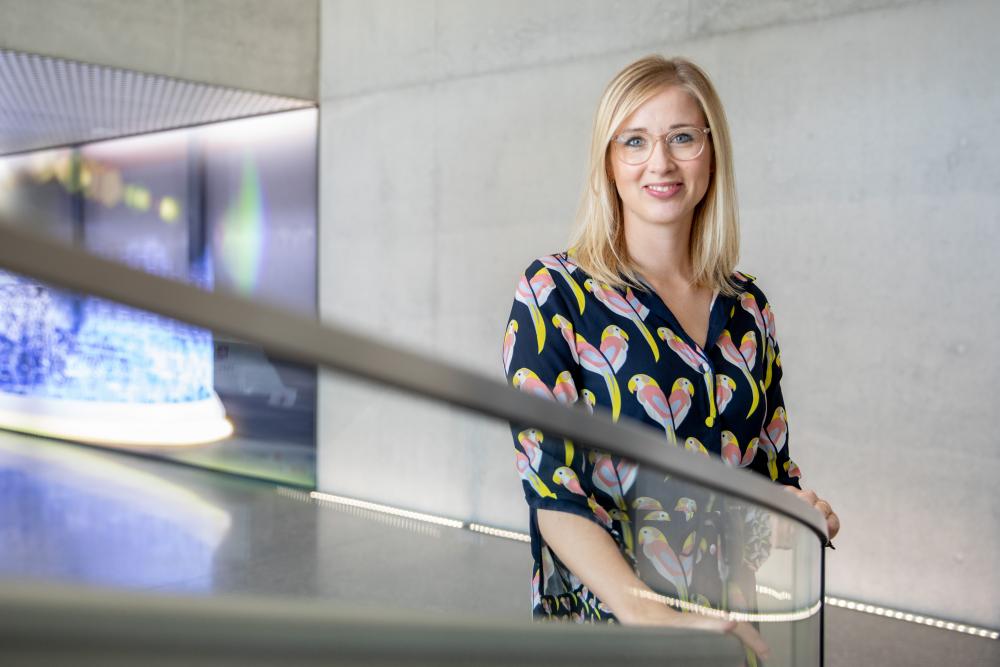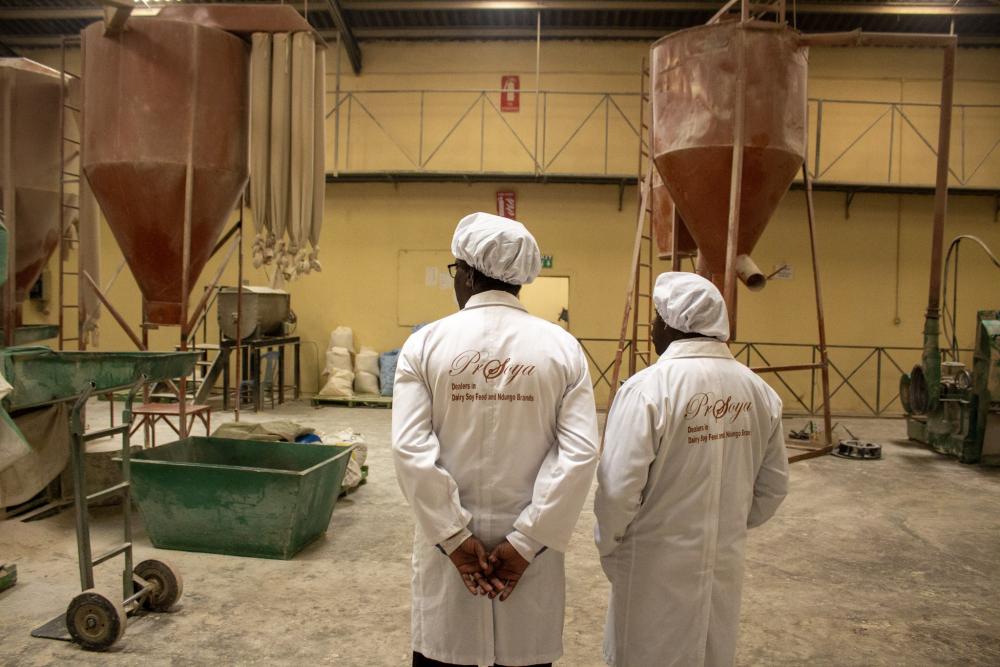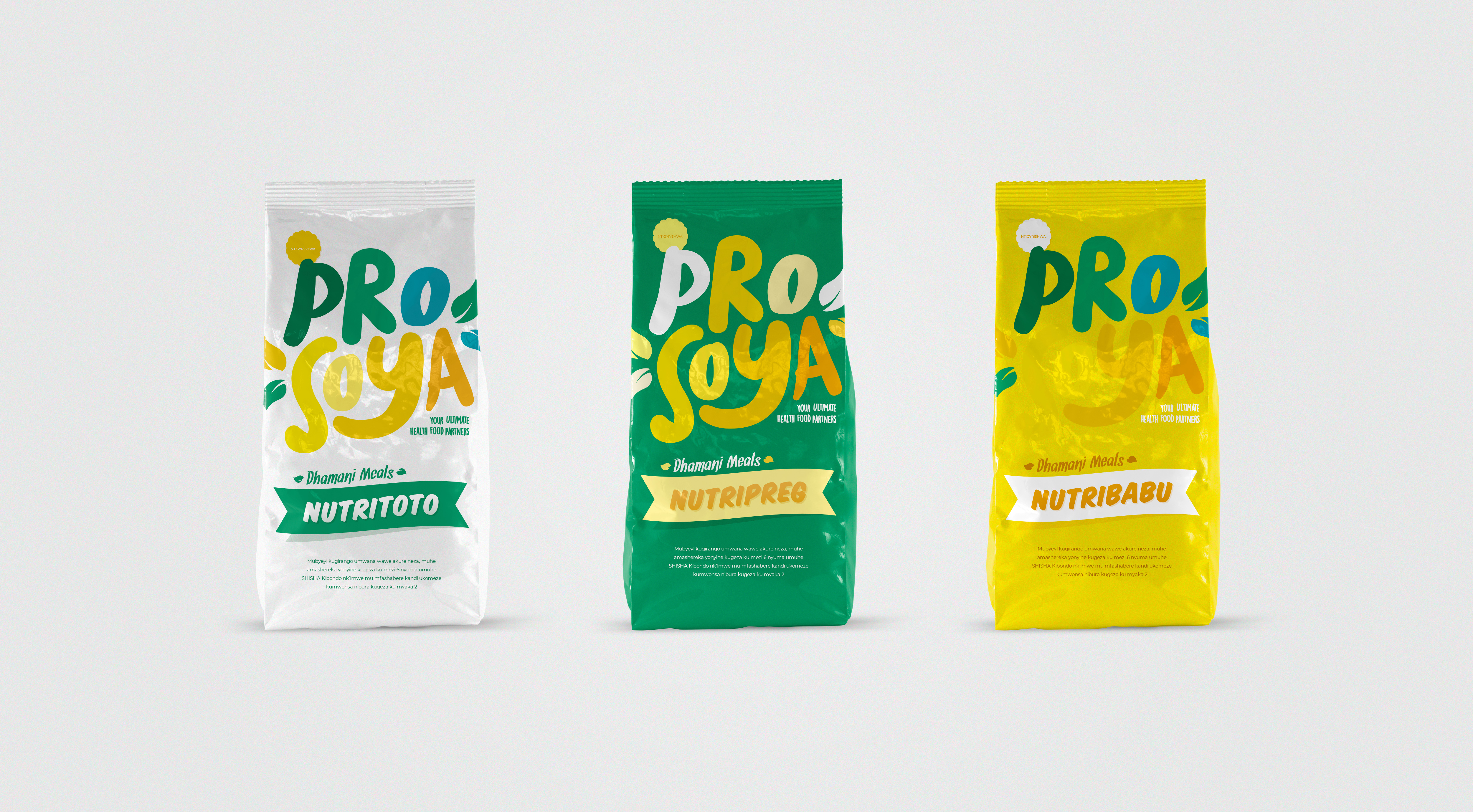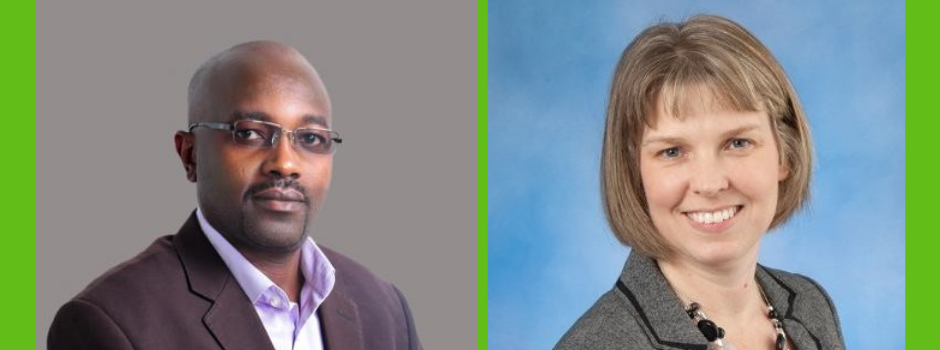
Bühler's Hidden Champions
Katharina Hilker is an inspiring leader and Bühler champion for Partners in Food Solutions (PFS). Katharina believes that PFS is a great opportunity for Bühler employees to share their knowledge and have a positive impact by fighting malnutrition in Africa.
PFS: How does volunteering with Partners in Food Solutions
help Bühler employees live out their purpose?
KH: Our goal at Bühler is to balance humanity, nature and
economy in every decision. I believe Partners in Food
Solutions allows employees to live out Bühler’s values
by sharing their knowledge and skills with others, and
helping make food more nutritious, safe and affordable for
communities in Africa and beyond.
PFS: How can volunteering with Partners in Food Solutions
help Bühler employees develop new skills and/or grow as
a leader?
KH: I think volunteering with PFS shows independent ownership
and ambition to make a difference. Over the years, Bühler
employees have spent thousands of hours volunteering
with PFS therefore increasing their exposure to new cultures
and markets, honing their teamwork skills, and getting
comfortable dealing with ambiguity and different work
environments.
PFS: What is your favorite aspect of Partners in Food
Solutions?
KH: I am always impressed with the amount of impact an
individual can have through volunteering with PFS. You
are working with entrepreneurial food companies, growing
their capacity and capabilities, and you’re directly involved
in the knowledge-sharing process. This is such a unique
opportunity to connect the world, improve nutrition, and
make an impact beyond yourself and Bühler.
PFS: If someone is interested in volunteering but may be
hesitant to start, what would you say to them?
KH: We have a great community of PFS volunteers from Bühler
that continues to grow each year and I think that’s proof of
the program’s success. Our volunteers are incredibly humble
and often keep their successes to themselves – they are the
hidden champions in our departments. If you’re interested in
volunteering with PFS, I would say be curious, trust yourself,
trust your knowledge, and be open to speaking to your
colleagues about it.

Boosting Efficiencies to Help Improve Nutrition in Kenya
Malnutrition is the cause of nearly half of all deaths in children under five globally. In Kenya, 26 percent of children under five are stunted due to chronic malnutrition. To address these public health challenges, companies like Prosoya, a fortified flour company based in Nairobi, are focusing on helping these vulnerable populations by developing fortified products with vital nutrients. “We consider ourselves a social-impact company and our ideology is to fight poverty, unemployment and malnutrition,” said Prosoya CEO Kaburu Muguika. Prosoya makes several nutritious products including fortified Uji lala (ready to drink porridge) and flour, important sources of nutrients for children, pregnant and breastfeeding mothers, and those who suffer from malnutrition. Prosoya works with relief organizations like the World Food Programme (WFP) and school feeding programs to distribute their products in several countries including South Sudan, Ethiopia, and Somalia.
Partners in Food Solutions, TechnoServe and USAID have been working collectively with Prosoya on several projects including the development of new marketing and branding materials for their nutritious porridge, designing a factory layout for their new facility and formulating animal feed with locally available ingredients. Bühler Project Manager Nate Jonas serves as a PFS client lead for Prosoya. “I chose to get involved with PFS because I like the idea of collaborating with individuals from other companies and sharing my skills and knowledge to make processes more efficient, more sustainable and less wasteful,” said Nate.
Client leads play an important facilitatory role as project managers for active projects with a given client. They schedule meetings, facilitate calls, keep track of action items and ensure projects reach completion. Not only are they supporting the client, but client leads also help PFS program associates manage their growing client portfolios. Faith Ngila, a PFS program associate in Kenya, manages 40+ client activities at any given time across Kenya, Ethiopia and Tanzania. “Client leads literally make my job doable because it would be impossible for me to be on every meeting and track the progress on each project without their support,” she said. “Nate has gone the extra mile to gain a thorough understanding of Prosoya’s needs and even sacrificed his mornings to attend our 6:00 am bi-weekly calls. Moreover, Nate brings his experience working at Bühler and contributes to the projects he facilitates moving the project forward more efficiently.”
Prosoya recently finished their marketing and branded materials project and is now focused on finishing their new facility layout design project that will allow them to expand their production. “There is a lot of benefit to having volunteers,” said Kaburu. “I am happy they are on board helping us help those at the bottom of the pyramid.”

Students, PFS Volunteers and TechnoServe Staff Help Design New Cooling Equipment Solution for Ethiopia
Located outside Addis Ababa, dairy farmers start their day by filling large containers with fresh milk before transporting it to a local processing facility. By milking cows early in the morning, farmers can ensure their product is as fresh as possible before it gets processed into yogurt or cheese. For the farmers located farther away milk pick-ups and deliveries are less frequent, leaving the milk to sit at warmer temperatures longer, creating spoilage and quality issues. To address this problem, Partners in Food Solutions, TechnoServe and USAID partnered with University of St. Thomas engineering students to design an off-grid cooling system that would keep milk at an optimal temperature and extend its quality.
Erika Thiem, supply chain director for the dairy platform at General Mills, helped with the project. After coming off a global work assignment with Häagen-Dazs that took Erika to different markets around the world, she realized how much she missed learning about other cultures and making global connections. “This project intersected my experience working with dairy, global regulations, and understanding the realities of dairy farming,” said Erika. “For small dairy farmers in Ethiopia, milk has a tremendous value. By reducing spoilage and extending the milk’s quality, farmers can increase their earnings. In this case, farmers could almost double their returns.”
Designing a cooling system for remote dairy farmers comes with unique challenges. Simon Hailu, a food processing specialist at TechnoServe Ethiopia, helped facilitate the project from the field. He said, “The system needed to use a dependable and inexpensive energy source since power supplies are unreliable in the area. Additionally, the solution needed to be easy to clean and disinfect, and be affordable to develop in Ethiopia.”
Throughout the 2019-2020 school year, students worked together to come up with innovative solutions that could solve the dairy farmers’ problem. From insulated containers to a portable ice maker to solar and diesel-generated power systems, the team explored various approaches that challenged their assumptions and widened their perspectives. “Being a part of these kinds of projects presents some of the greatest engineering challenges,” said University of St. Thomas Professor Greg Mowry. “This project challenged students because it tested their capabilities and out- of-the-box thinking when they didn’t have access to all of our systems like reliable electricity. I think this project changed us for the better, just as much as the project helped others and that is perhaps the most significant aspect of all.”
Due to COVID-19, the students involved in this project were unable to build a prototype of their off-grid cooling system. They did, however, finish the design for an insulated stainless steel container with an ice core that keeps milk cool for up to eight hours and connects to an off-grid energy source like a solar system. The team recommended having farmers split the cost of sourcing an ice machine to make it more affordable. PFS partner TechnoServe is currently exploring ways to build a prototype of the machine to show its benefits to local farmers. “If the recommended system works fine, we can demonstrate it to farmers and micro-finance the project through institutions and other stakeholders,” said Simon. “We’re closer than ever to helping remote dairy farmers in the region improve their milk quality and increase their access to markets through this innovative solution.”

Cracking the Code to ISO 22000
Pristine Foods Limited, an egg processing company in Uganda that produces products for vulnerable groups such as children and the elderly, wanted to improve their safety measures by implementing a more robust quality management system. Advancing their food safety and quality programs would allow them to expand to new markets including supplying to international organizations that help combat nutritional challenges throughout Africa. Furthermore, obtaining an ISO 22000 Certification would also assure customers that their products are processed at the highest standards, increasing their confidence.
To help advance their quality management system, General Mills Regional Auditor for Europe/Australia Alice Millat offered to lend her expertise. “At General Mills I conduct audits at our suppliers’ facilities and act as a link between the suppliers and General Mills in the case of an issue or question. I enjoy working in quality control and love sharing my experience so volunteering with PFS was just too good of an opportunity to pass up,” said Alice. “During the past several months we’ve reviewed their ISO 22000 manual and their hazard analysis and control documents. Now, we are focused on helping them address some production challenges – especially storage issues,” she continued.
Despite the fact that this project was kicked off at the start of the COVID-19 pandemic, the volunteers have made great progress in helping the client prepare for an ISO 22000 Certification. “We’ve benefited greatly from PFS’ rich network of extremely rare world-class experts in food processing,” said Joel Guma, managing director of Pristine Foods Ltd. “The experts and support team at PFS who we’ve been working with have been highly knowledgeable, professional and always willing to assist. This tremendous help has certainly put us on a more confident path to obtaining an ISO 22000 Certification.”

Deepening Global Perspectives Through Mentorship
Johnson Kiragu, regional program director - East Africa at Partners in Food Solutions and Sarah Moberg, director of ITQ integrated operations at General Mills, joined the PFS mentoring program in November 2019 with hopes of developing a deeper global understanding, learning some new skills and fostering a new connection. What they didn’t anticipate was having to navigate a pandemic that spanned continents and impacted them both professionally and personally.
Luckily, Johnson and Sarah were able to use each other as a resource and sounding board in addressing COVID-19 related challenges they’ve encountered. “Earlier this year when COVID 19 first hit Kenya, I got a lot of helpful information and tools from Sarah that I shared with our clients to help them improve their safety and the safety of their staff,” said Johnson “Additionally, Sarah has helped me develop some best practices in leadership so I can become better at what I do, and be a greater resource for my clients during these unprecedented times.” Similarly, Sarah said that through her conversations with Johnson she has been able to expand her perspective. “I love that mentorship is a two-way relationship,” she said. “Learning flows in both directions and I’ve gained a trusted advisor in Johnson. That relationship will remain past the end of the mentorship program.”
Want to join the PFS mentorship program? We're looking for interested canidates who would like to mentor a PFS stakeholder and help guide them, while building skills in virtual coaching, entrepreneurial mindset, and cross-cultural competencies. Spend ~1-3 hours per month for one year serving as a PFS mentor. Contact [email protected] for more information.